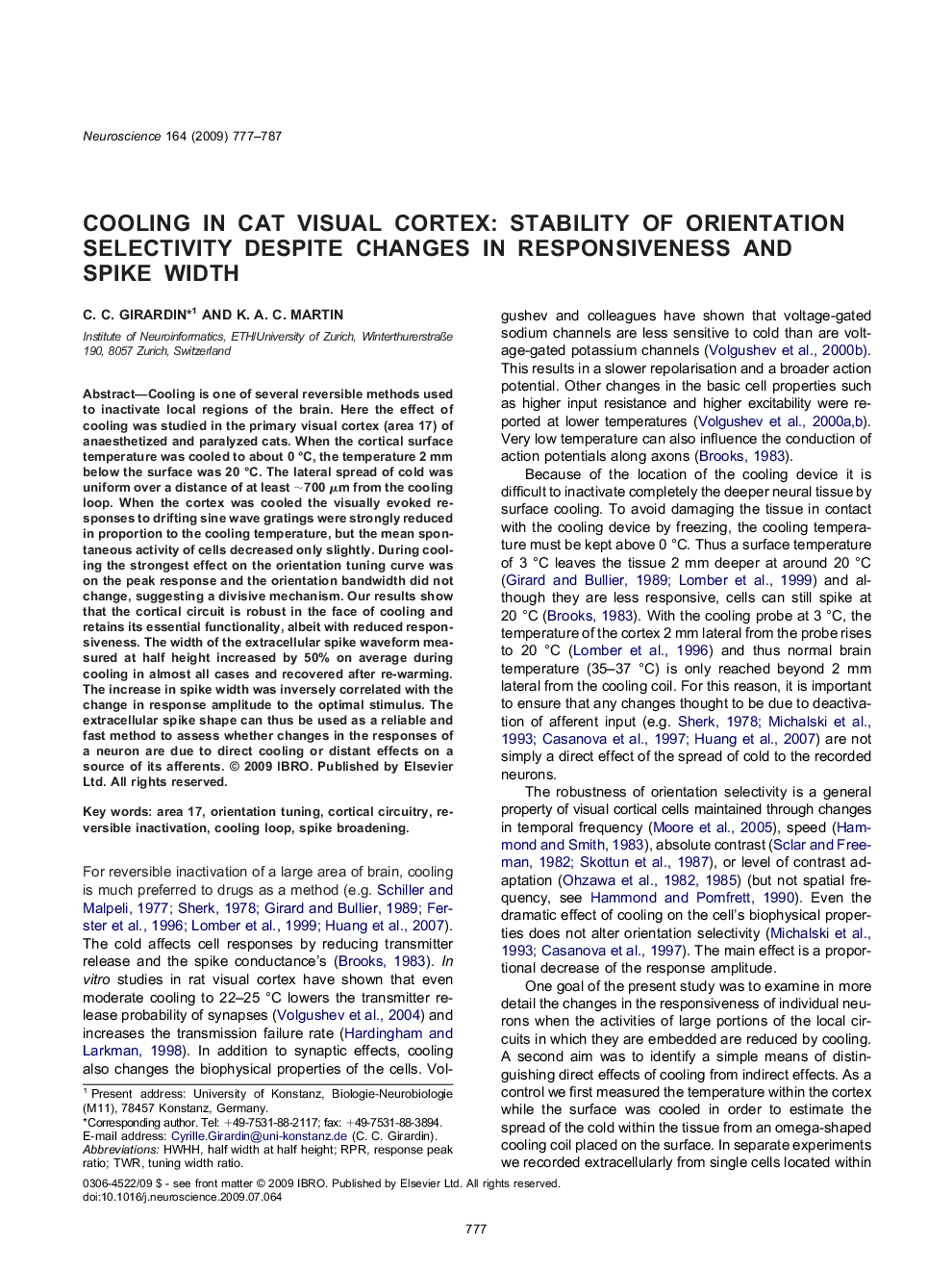| کد مقاله | کد نشریه | سال انتشار | مقاله انگلیسی | نسخه تمام متن |
|---|---|---|---|---|
| 4339825 | 1295768 | 2009 | 11 صفحه PDF | دانلود رایگان |

Cooling is one of several reversible methods used to inactivate local regions of the brain. Here the effect of cooling was studied in the primary visual cortex (area 17) of anaesthetized and paralyzed cats. When the cortical surface temperature was cooled to about 0 °C, the temperature 2 mm below the surface was 20 °C. The lateral spread of cold was uniform over a distance of at least ∼700 μm from the cooling loop. When the cortex was cooled the visually evoked responses to drifting sine wave gratings were strongly reduced in proportion to the cooling temperature, but the mean spontaneous activity of cells decreased only slightly. During cooling the strongest effect on the orientation tuning curve was on the peak response and the orientation bandwidth did not change, suggesting a divisive mechanism. Our results show that the cortical circuit is robust in the face of cooling and retains its essential functionality, albeit with reduced responsiveness. The width of the extracellular spike waveform measured at half height increased by 50% on average during cooling in almost all cases and recovered after re-warming. The increase in spike width was inversely correlated with the change in response amplitude to the optimal stimulus. The extracellular spike shape can thus be used as a reliable and fast method to assess whether changes in the responses of a neuron are due to direct cooling or distant effects on a source of its afferents.
Journal: Neuroscience - Volume 164, Issue 2, 1 December 2009, Pages 777–787